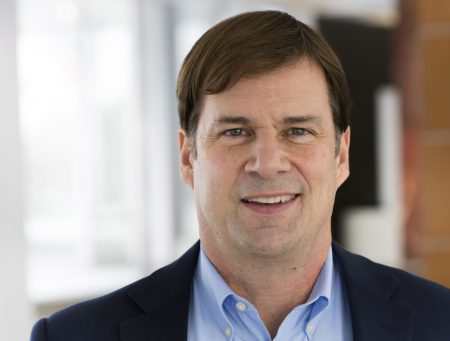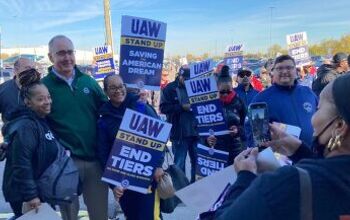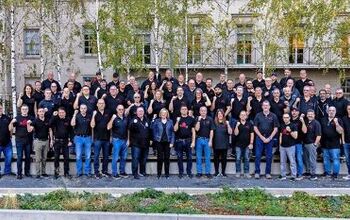Launches Matter: Incoming Ford COO Holds Course, Promises Better

Addressing a crowd at the Wolfe Research Global Auto, Auto Tech and Mobility Conference in New York City on Tuesday, Jim Farley said he sees similarities between Ford’s present situation and that of the 2009 financial crisis that nearly sunk the Detroit Three. He feels it in the hallways of Ford’s Dearborn HQ.
As automakers grapple with a number of challenges in a rapidly changing industry, Farley, who takes on the role of Ford’s chief operating officer March 1st, outlined how he plans to deliver his mandate of a global pre-tax margin of 8 percent. For starters, there’s the issue of launches.
Things went badly when it came time to deliver the all-new Ford Explorer and Lincoln Aviator last summer, forcing the automaker into an expensive — and embarrassing — emergency fix program that saw it truck freshly minted SUVs to Flat Rock Assembly, two states away, for repair. Sales of the vastly important Explorer sank 26 percent in 2019.
That botched launch, plus high recall costs and one-time charges associated with the company’s global streamlining effort, led to a cratering in profit. Ford’s fourth-quarter earnings report earlier this month led to a stock plunge.
Yet Ford isn’t clueless in the face of crisis, Farley told the crowd. “Decisions get made quickly” in times of adversity, he said. “It’s very natural. Everyone at Ford Motor Company knows the situation we’re in.”
That said, the exec admits Ford must “fix a number of things.”
First order of business will be getting bloated warranty costs under control. Farley said the company saw $5 billion in such costs over the past year, well above previous annual tallies. Next comes product, and hopefully a more seamless introduction to market.
“We have to get our launches right,” Farley said, adding, “Not just the Explorer launch. We have about 10 global, enormously important launches. They have got to land well.”
The team tasked with bringing these products to market will need to be quicker on their feet, he said, able to identify quality problems in hours instead of months. New talent brought on board will need to be a cut above, and the focus should remain on doing well in North America before any other market.
“It’s all about North America and the recovery of China,” he said, gazing into the near future. Part of Ford’s growth plan in its most profitable region will be a stronger push for its commercial vehicle lines.
Lastly, in order to nudge Ford’s stock in the right direction, Farley wants to see milestones, concrete examples of the company’s plan coming to fruition — and he wants investors to take notice of them when they occur.
When asked about the company’s culture, Farley admitted the Blue Oval needs a “re-awakening,” but hesitated to go into specifics, claiming the culture in the Glass House is fairly good already. Having execs and managers always on the same page, working towards the same goals, is key. “There were issues people knew about that just weren’t being resolved,” he said, referring to the warranty costs. “I don’t think it’s any more complicated than that
[Sources: Detroit Free Press, Reuters] [Images: Ford]

More by Steph Willems
Latest Car Reviews
Read moreLatest Product Reviews
Read moreRecent Comments
- Golden2husky The biggest hurdle for us would be the lack of a good charging network for road tripping as we are at the point in our lives that we will be traveling quite a bit. I'd rather pay more for longer range so the cheaper models would probably not make the cut. Improve the charging infrastructure and I'm certainly going to give one a try. This is more important that a lowish entry price IMHO.
- Add Lightness I have nothing against paying more to get quality (think Toyota vs Chryco) but hate all the silly, non-mandated 'stuff' that automakers load onto cars based on what non-gearhead focus groups tell them they need to have in a car. I blame focus groups for automatic everything and double drivetrains (AWD) that really never gets used 98% of the time. The other 2% of the time, one goes looking for a place to need it to rationanalize the purchase.
- Ger65691276 I would never buy an electric car never in my lifetime I will gas is my way of going electric is not green email
- GregLocock Not as my primary vehicle no, although like all the rich people who are currently subsidised by poor people, I'd buy one as a runabout for town.
- Jalop1991 is this anything like a cheap high end German car?



































Comments
Join the conversation
• Ford must “fix a number of things.” • “We have to get our launches right,” Farley said, adding, “Not just the Explorer launch. We have about 10 global, enormously important launches. They have got to land well.” Cue 1980's-style montage wherein the Ford Motor Company learns in 2 months how to perfect its ~48-60 month new vehicle launch process. Soundtrack TBD (something along the lines of "You're the Best"). You like history? I like history. Here's an article about Ford working to improve its launch process - an article from *2013* (seven years ago): https://www.autonews.com/article/20130506/OEM01/305069971/ford-takes-long-look-at-launches
These issues of muffed launches and not ready-for-prime-time components were also heavily present during the Mulally era.